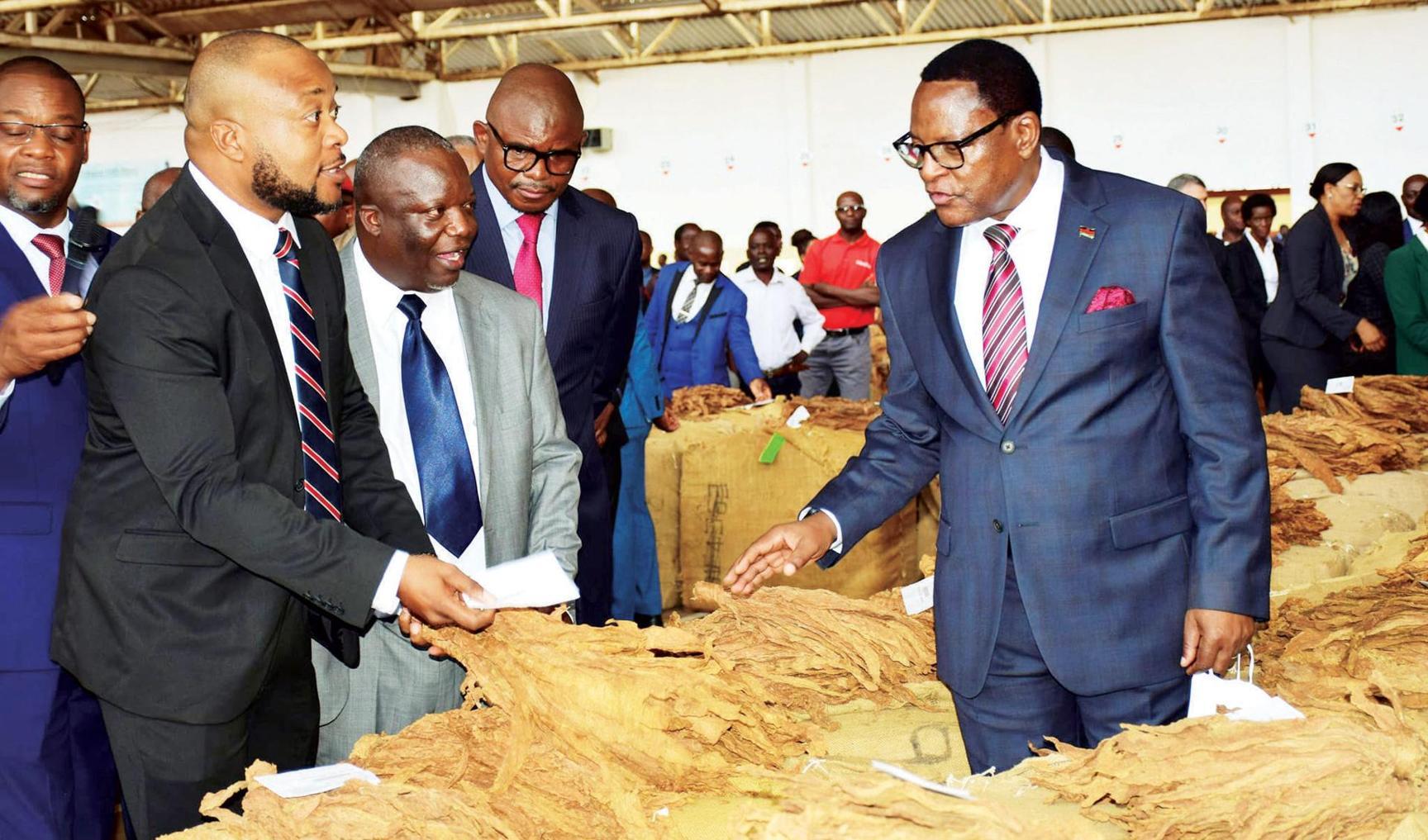By bernadetta chiwanda mia
Africa-Press – Malawi. What began as Malawi’s most promising tobacco season in years has quickly turned into a tale of missed opportunities and farmer frustration, as declining prices overshadow record production levels.
The 2025 marketing season opened with unprecedented optimism following a remarkable 31 percent surge in production to 174.4 million kilogrammes – a significant jump from last year’s 133 million kilogrammes.
Early indicators suggested this would be the breakthrough season the industry desperately needed.
However, halfway through the marketing period, the reality tells a different story.
By June 27, Malawi had moved 126.5 million kilogrammes(kg) of the golden leaf – marginally higher than the 120.3 million kilogrammes sold during the same period in 2024.
The concerning trend lies in the earnings. At $319.6 million, the country has generated less revenue than the $353.8 million recorded last year during the equivalent 12-week period.
More troubling still, the average price has declined from $2.94 to $2.52 per kg.
This downturn is particularly painful for farmers who invested heavily in expanding their operations, banking on strong market conditions.
Many now face significant losses as production costs continue rising while prices fall.
The situation becomes more stark when compared to neighbouring Zimbabwe’s extraordinary performance this season.
According to the Tobacco Industry and Marketing Board (TIMB), Zimbabwe has already sold over 300 million kg since opening in March – surpassing its previous record of 296 million Kg set in 2024.
Zimbabwe’s total revenue has crossed the $1 billion mark, providing crucial foreign exchange relief for a country also grappling with currency shortages. Their average price stands at $3.40 per kg – down slightly from last year’s $3.50 but still substantially above Malawi’s current rate.
This performance gap is not accidental. In 2021, Zimbabwe implemented its ambitious Tobacco Value Chain Transformation Plan, targeting annual production of at least 300 million kg and developing the sector into a $5 billion industry by 2025.
The strategy encompasses improved local processing capabilities, expanded farmer participation, and development of a more equitable value chain. Over 100,000 smallholder farmers have contributed to this season’s record output.
For Malawi, tobacco remains the backbone of agricultural exports, contributing more than half of the country’s foreign exchange earnings.
Last year, the sector generated nearly $400 million in revenue.
Despite this year’s production increase, Malawi continues falling short of market demand. Buyers sought 213 million kilogrammes this season – a target the country failed to meet even with record harvests.
Agriculture expert Leonard Chimwaza identifies three primary challenges undermining Malawi’s competitiveness including; declining global tobacco prices, intensifying competition from other producers, and unequal international market conditions.
“European Union subsidies to European tobacco farmers distort the global market. Countries like France, Germany, Spain, and Greece receive direct support that often exceeds the average auction price of tobacco here in Malawi. This makes it extremely difficult for our farmers to compete on level terms,” Chimwaza said.
Economist Velli Nyirongo highlights the structural challenges facing Malawi’s tobacco sector, noting its fundamentally buyer-driven nature where companies dictate purchase volumes, provide inputs to contracted farmers, and largely determine pricing mechanisms.
He also points to shifting global consumption patterns, where demand for traditional leaf tobacco is stagnating while alternatives like e-cigarettes and heated tobacco products gain market share.
“This operates as a demand-led market. Farmers don’t grow to supply an open market – they grow to fulfil specific contracts, with very few operating independently.
“Malawi has yet to break into these emerging markets,” Nyirongo noted. “Even with this year’s bumper crop, the country still cannot meet full buyer demand,” Nyirongo said.
On the ground, tobacco farmers are experiencing mounting pressure. Many had anticipated higher earnings following last year’s encouraging prices and contractor promises of enhanced support.
Instead, declining prices combined with rising production costs are rapidly eroding profit margins.
In a recent interview, Vice President of the Tobacco Association of Malawi Trust, Rhodes Sulumba, reiterated that while the market is functioning well, price levels have disappointed farmers.
“So far, we can see the market is going on well and the prices have at least improved but it’s not as much as compared to last season’s prices. Normally everybody wants good prices and looking at the prices this year, the prices are a bit lower compared to last season. We will at least achieve last year’s earnings due to the fact that this year we grew a lot of tobacco not because of the prices,” Sulumba said.
Despite current setbacks, tobacco retains substantial value for Malawi’s economy – provided the sector undergoes necessary modernisation and restructuring.
While economic diversification remains essential for long-term sustainability, tobacco continues offering one of the few sectors capable of generating significant foreign exchange that the nation urgently requires.
The key lies in implementing sound strategies and following them consistently, as Zimbabwe has demonstrated.
Without such commitment, Malawi risks watching its most important cash.
For More News And Analysis About Malawi Follow Africa-Press






